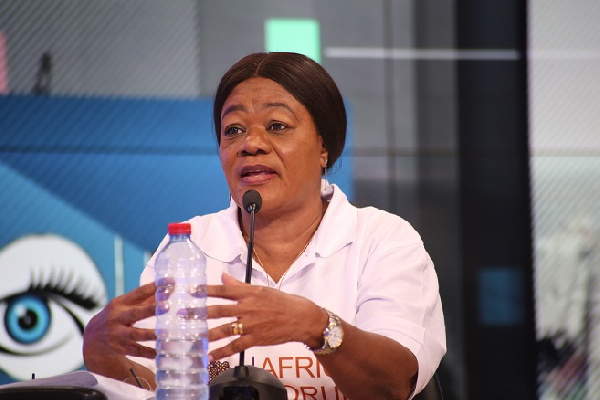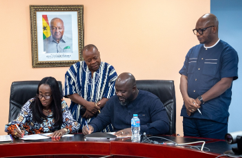Governments and industry players within Africa have once again been urged to collaborate towards investments into transport infrastructure to drive the continental free trade.
Mrs. Naa Densua Aryeetey, an Executive Member of the Governing Council of the Chartered Institute of Logistics and Transport (CILT), Ghana and Mr. Patrick Andoh, the Vice President in charge of Logistics at the Chartered Institute of Logistics and Transport (CILT), Ghana are the latest to add to this clarion call.
They made calls for investments into multimodal systems of transport such as modern rail networks, robust road infrastructure, inland water and maritime transport.
This follows the debate that the Free Trade Agreement in Africa may be rendered unsuccessful without adequate transport infrastructural support.
According to the experts in transport and logistics who were speaking on the Eye on Port program, adequate investment into all the various means of transport reduces the burden on the continent’s road infrastructure, and gives Africans the opportunity to cost-effectively convey much cargo across the continent.
Mr. Patrick Andoh, stated that he supports the call for African states and private organisations to own ocean carriers for intra-regional trade.
He said transport and logistics is the backbone for all trading systems and therefore “the element of ownership of these vessels in itself is strategic and it helps achieve our objectives for the continental free trade.”
Mrs. Aryeetey on her part, called on freight forwarders in Ghana to consolidate resources towards this goal.
She said logistics and shipping service providers in Ghana, and Africa, at large, should take a cue from the major international shipping companies, who are forming conglomerates in order to successfully achieve their goal of providing end-to-end shipping services globally.
“Can they take the opportunity to acquire vessels, maybe 1500-3000 TEUs to provide short sea shipping for our goods?” she admonished.
Mrs. Aryeetey said it has become crucial for investment into regional sea shipping because the status quo at the moment makes shipping among African countries very expensive.
She said such investment into maritime transport will not only make trade more efficient, but will generate revenue for African states as well as create jobs.
“If we have our own vessels it will even serve as an opportunity to train our seafarers,” she added.
The Executive Member of the Governing Council of CILT, Ghana, also said African countries should augment its railway infrastructure as well as inland water transport, to expedite movement of goods across the hinterlands.
Mr. Patrick Andoh, also said funding should be allotted for maintenance of transport infrastructure.










